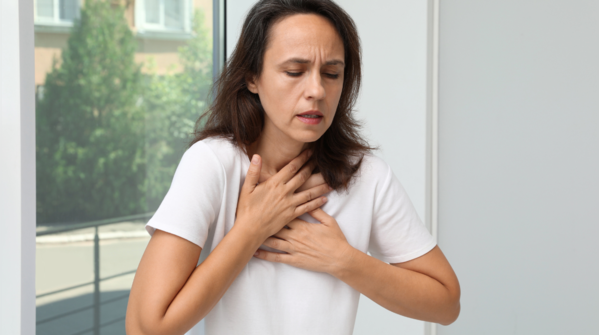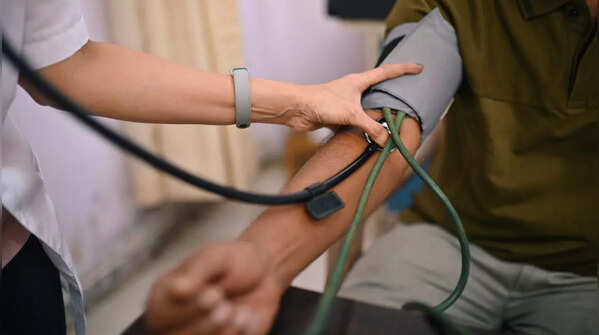- News
- lifestyle
- health-fitness
- health-news
- 5 warning signs of High Blood Pressure one should not ignore
5 warning signs of High Blood Pressure one should not ignore

5 warning signs of High Blood Pressure one should not ignore
High blood pressure, also known as hypertension, is a leading cause of premature death and cardiovascular disease globally. It is a silent killer and a major risk factor for stroke, heart disease, kidney disease, and other severe diseases. According to the statistics, nearly half the population in the US has hypertension, but many aren't even aware of it. Recognizing early warning signs is critical to preventing the health problems associated with it. Though hypertension is generally a silent condition, certain symptoms will help you recognize it.

Frequent headaches
Persistent and unexplained headaches should not be dismissed easily. Headaches, especially in the morning, can signal high blood pressure. These headaches often feel like a pulsating or throbbing pain and may persist despite over-the-counter remedies. This is because elevated blood pressure can strain blood vessels in the brain. If the headaches are recurring, you must consult a healthcare provider.

Dizziness
Feeling lightheaded or dizzy very often signals pressure on the body’s circulation. Elevated blood pressure can reduce oxygen delivery to organs, which can lead to unexplained tiredness or fainting spells. Dizziness is a common complaint that people who get diagnosed with hypertension make.

Vision changes
Vision changes are an indication of high blood pressure. Conditions such as blurry vision, double vision, or sudden vision loss may indicate hypertensive retinopathy, a condition where high blood pressure damages blood vessels in the retina. Untreated hypertension can even lead to permanent vision impairment. If you notice any disturbances in your, seek medical attention promptly.

Difficulty breathing
Another major sign of high blood pressure that often gets mistaken as something else is shortness of breath. Unexplained shortness of breath, even without physical exertion, can be a red flag for hypertension. High blood pressure forces the heart to work harder, potentially leading to fluid buildup in the lungs.

Chest discomfort
Chest pain or tightness, especially during rest or mild activity, is a critical warning sign. High blood pressure can stress the heart, increasing the risk of angina or a heart attack. Chest discomfort should never be ignored, as it may indicate reduced blood flow to the heart. If chest pain is severe or accompanied by sweating, nausea, or arm pain, you should seek help immediately.

What to do?
Seeking the help of your healthcare provider is important if you experience any of these symptoms. They can test your blood pressure and suggest treatments. Along with the treatment, you can also make certain changes in your lifestyle to reduce the risk and lower your blood pressure. These include:
eating a healthy, low-salt diet
losing weight
being physically active
quitting tobacco








